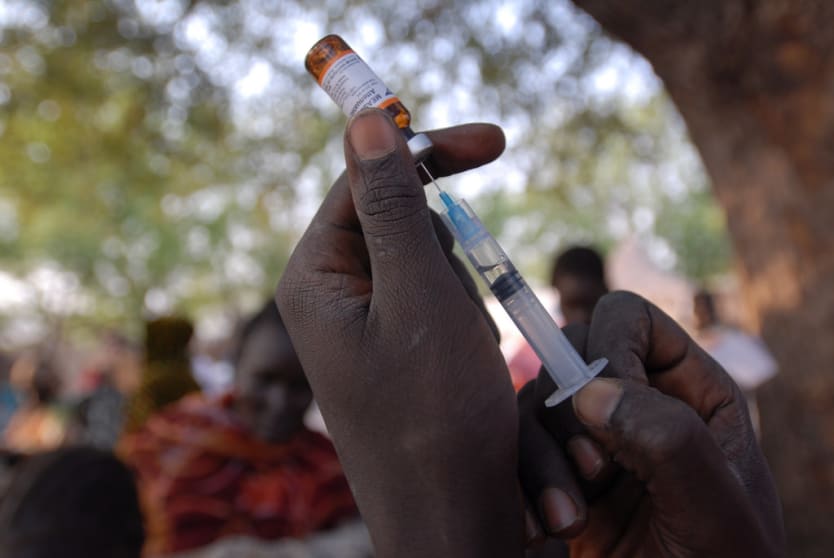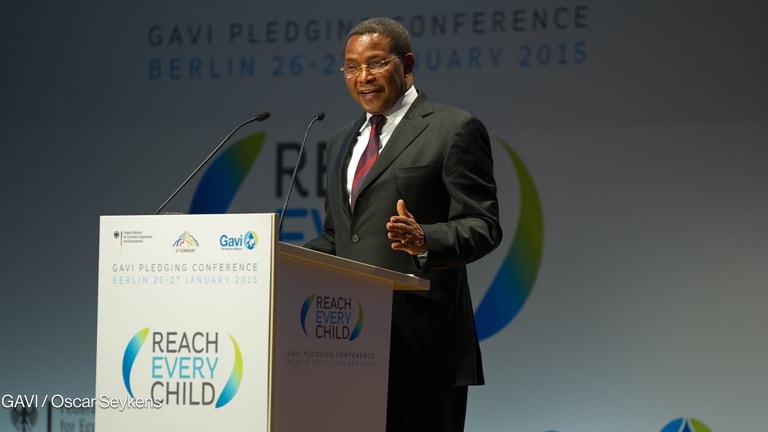
Forty years ago this year, the last natural case of smallpox was found in a 23-year-old cook in Somalia, who, unlike so many before him, survived. A disease that may have killed as many as half a billion people in the last century alone — and was still infecting over 10 million just a decade before — was defeated. The collective effort, written off as impossible by experts just a few years before, ranks as one of the world’s greatest achievements.
It was, of course, a triumph for vaccines, which had first been developed 200 years before to protect against this disease. But ending this scourge did not just require the right vaccines to exist. It required them to be given to children living in the remotest areas and most marginalised communities in Africa and Asia.
MSF launches Guinea emergency measles vaccination campaign amid effectiveness fears
Since February, a measles epidemic has been spreading across Guinea. Médecins Sans Frontières will now lead a large scale measles vaccination campaign in the hopes of reaching 3.7 million children who are in "urgent need" of vaccination.
Four decades later, the same strategy that defeated smallpox can ensure we take a big step to end the misery that measles and rubella cause. We now have the knowledge and power, through vaccines, to prevent any child dying of measles or enduring the chronic disability or ill-health that rubella can cause. What is needed again is the determined effort to reach those children and communities who, for whatever reason, have been missed by immunization programs.
It is these delivery gaps that mean that, despite the protection that vaccines bring, nearly 400 children each day — 15 every hour — continue to die from measles around the world. The long-term social and economic toll is far higher however, with measles having serious impacts on surviving children’s health and development, as well as loss of income for parents who have to take time off work to care for their sick children.
Deaths from measles have fallen from 2.6 million in 1980 to 134,000 today.
—The long-term damaging effects of rubella are also such a cause for concern. Over 100,000 babies are born with congenital rubella syndrome, which can lead to blindness, deafness or other life-changing defects, because their mothers contracted the disease during pregnancy.
Both of these diseases can be prevented with just two doses of effective vaccines. These have been safely in use around the world for decades, and are the main reason why deaths from measles have fallen from 2.6 million in 1980 to 134,000 today.
We now need to accelerate this progress. The aim of UNICEF and its partners in the global Measles & Rubella Initiative is to ensure every child and family, wherever they live, has the protection that vaccines give.
We at Alwaleed Philanthropies are determined to play our part in achieving this bold ambition.
This is why we are so excited to be supporting UNICEF to help them in the fight against measles and rubella. We are donating $50 million so that UNICEF and its partners on the ground can vaccinate an additional 50 million children in 14 countries most at risk from measles outbreaks.
If we get this right and provide the protection all children deserve, it will save 1.3 million children’s lives over the next decade.
—This is a tough challenge. It will need health workers to engage with communities that are hard-to-reach, either because of geography or suspicion. In most communities, the only barrier is lack of an effective system to deliver vaccines. Mothers are so desperate to protect their children — particularly against measles — that they walk miles and wait patiently in queues to be part of the immunization program.
There are also places where cultural beliefs or misinformation — which is found in all societies — has increased fears about vaccines. In these cases, education and patient dialogue with communities will have to go hand-in-hand with getting vaccines to remote areas.
But if we get this right and provide the protection all children deserve, it will save 1.3 million children’s lives over the next decade, and prove to be a decisive step in the battle against measles and rubella. It will bring the day when we can end the misery and suffering these diseases bring closer, just as we did with smallpox four decades ago.
Join the Devex community and access more in-depth analysis, breaking news and business advice — and a host of other services — on international development, humanitarian aid and global health.








